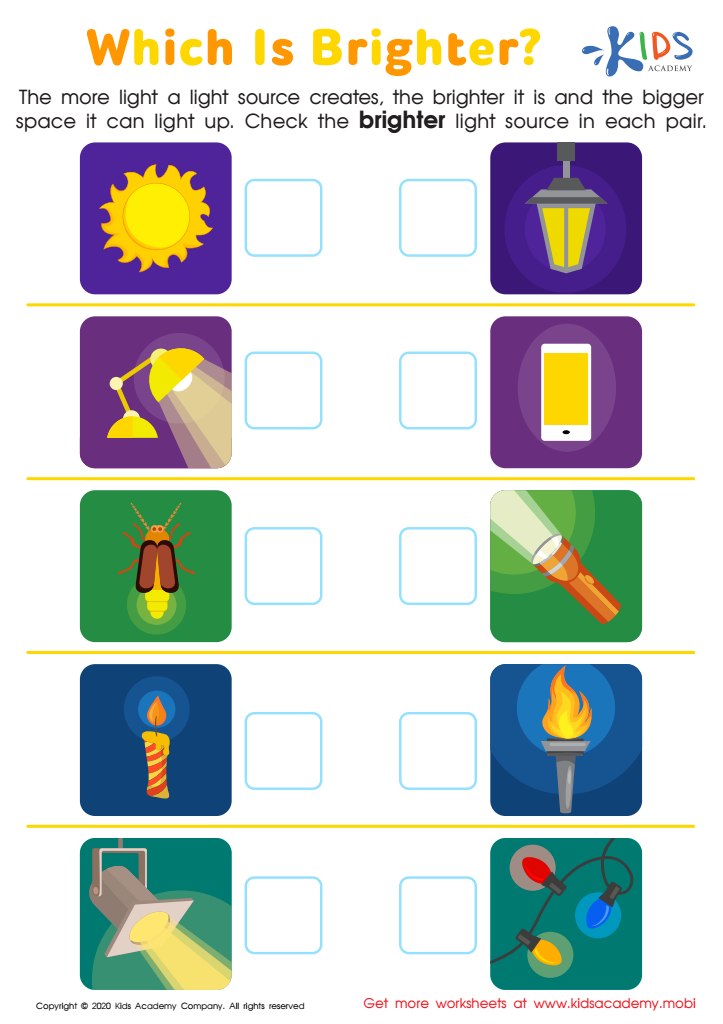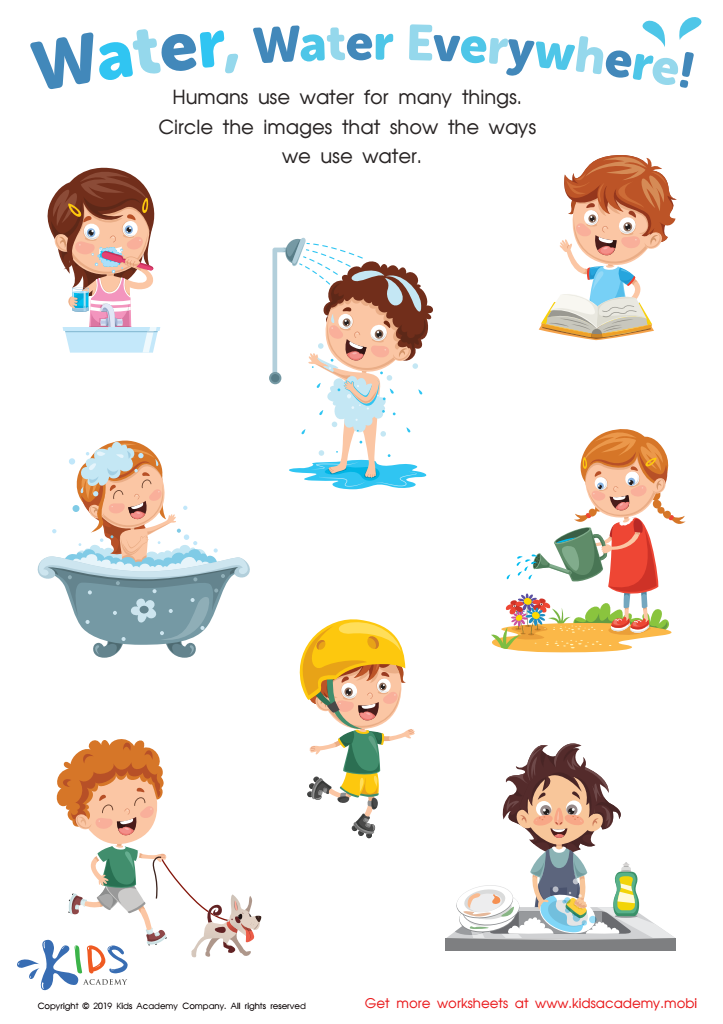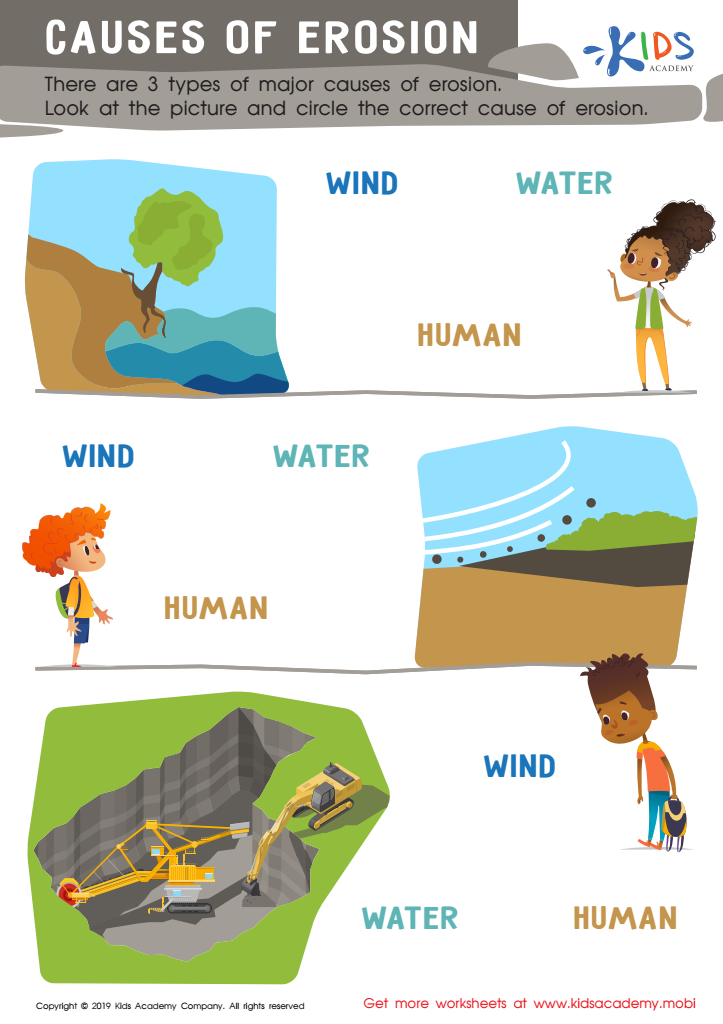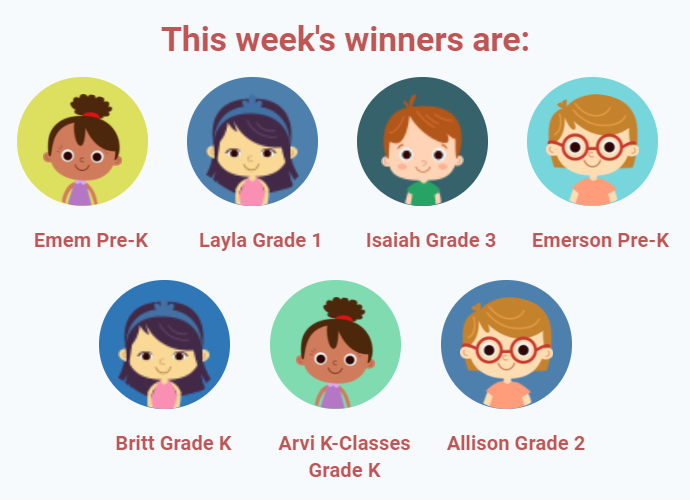Science knowledge application Worksheets for Ages 3-8
4 filtered results
-
From - To
Unlock your child's curiosity with our expertly designed Science Knowledge Application Worksheets for Ages 3-8. These engaging activities promote critical thinking, observation, and problem-solving skills necessary for young, inquisitive minds. Each worksheet delves into a variety of scientific themes, from animals and plants to weather and seasons, encouraging hands-on exploration and real-world connections. Perfect for home or school, our worksheets cater to different learning styles, making science accessible and fun. Inspire a love for learning and discovery with our educational resources, guiding children through the foundational concepts of science in a playful, interactive way.


Which Is Brighter? Worksheet


Water, Water Everywhere! Worksheet


Causes of Erosion Worksheet
Science knowledge application is crucial for young children aged 3-8 as it fosters a strong foundation for critical thinking, curiosity, and problem-solving skills. During these formative years, children's brains are exceptionally receptive to new information and experiences. Applying scientific principles encourages cognitive development through exploration and experimentation. When young learners engage in hands-on activities, they learn to observe, hypothesize, and draw conclusions, skills that are essential for everyday problem-solving and future academic success.
Moreover, an early introduction to science nurtures their natural curiosity about the world around them. This engagement stimulates a lifelong interest in learning and discovery. Children who regularly engage with scientific concepts develop better language skills as they learn new vocabulary and ways to articulate their observations and questions.
Involving children in science also boosts their confidence and independence, as they learn to investigate phenomena and draw their conclusions. By promoting collaborative learning experiences in science, children improve their social skills and learn the value of teamwork.
For parents and teachers, fostering an appreciation for science during these early years lays the groundwork for well-rounded individuals equipped to face the challenges of the modern world, where scientific literacy is increasingly important. Investing in early science education helps cultivate the next generation of innovators and critical thinkers.
 Assign to My Students
Assign to My Students





















